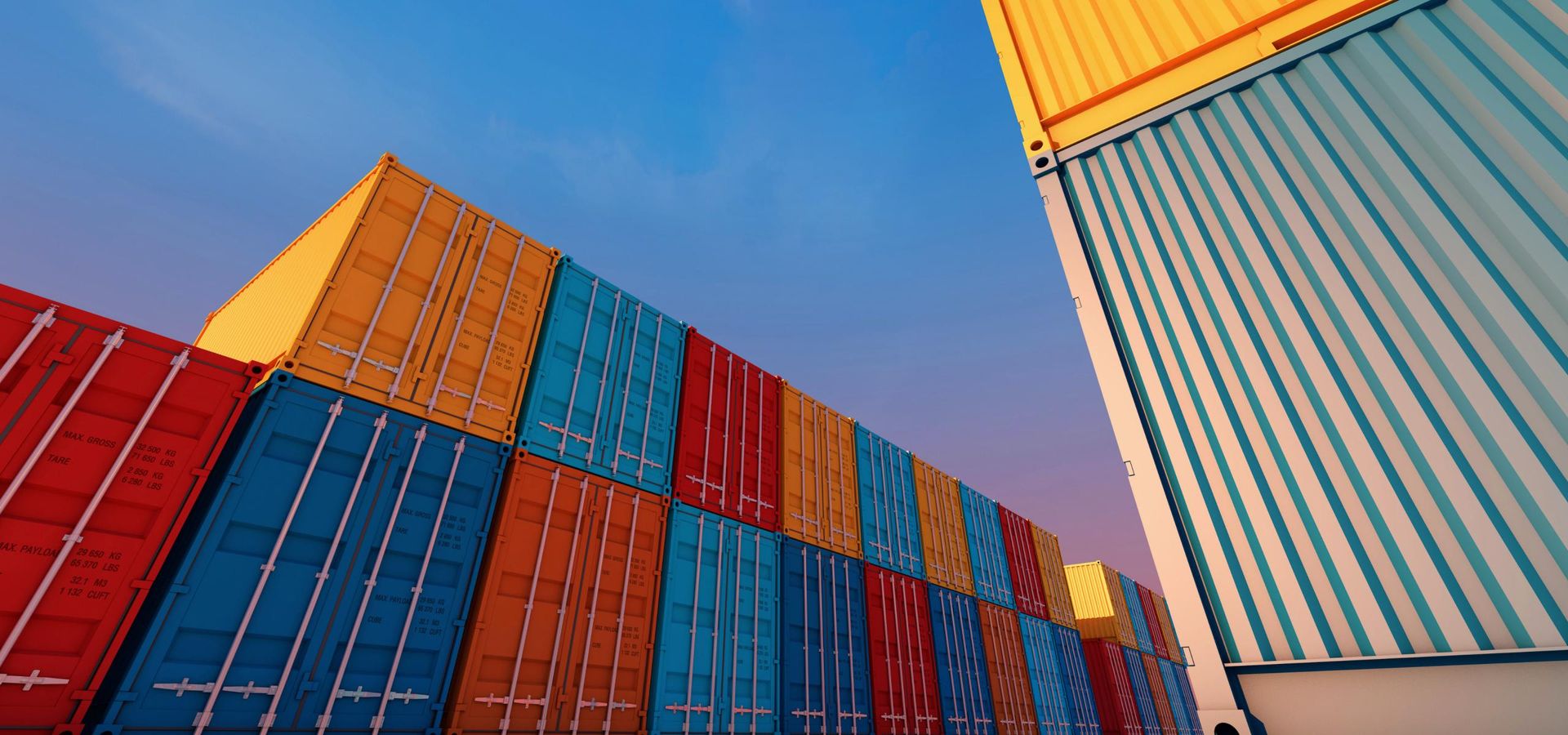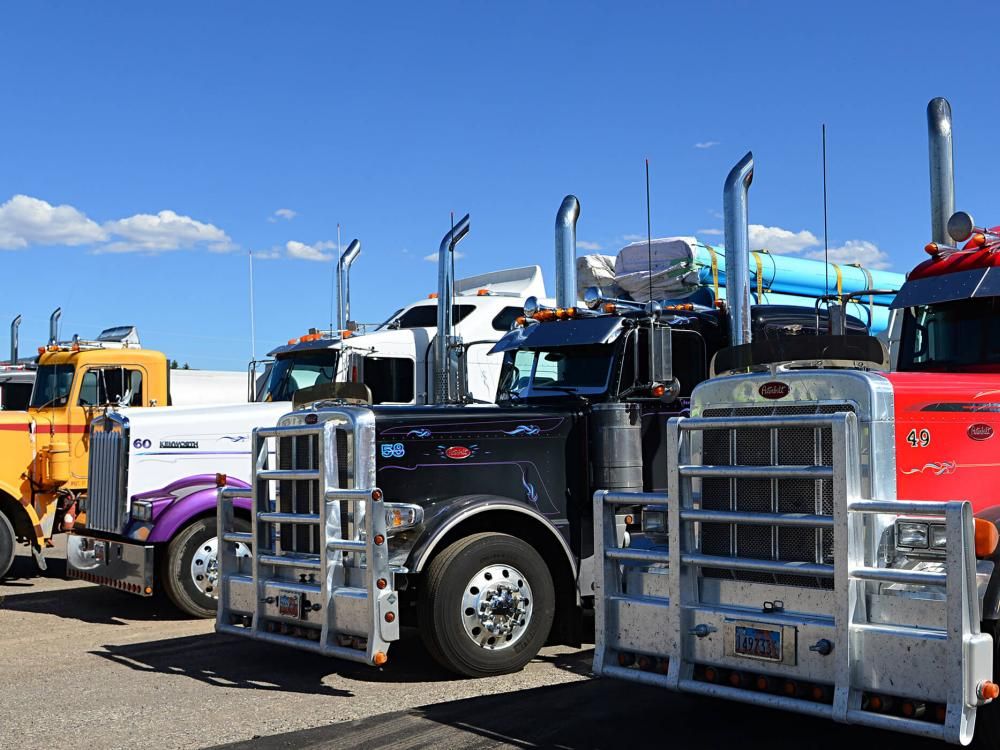
Logistics software development
- Home
- Logistics
Whether your company is looking for a custom software development team to build a logistics solution from scratch or modernize an existing application, Itransition’s IT service offering will meet your business needs.
Logistics software we deliver
Itransition provides logistics companies and their supply chain partners with extensive software solutions, ranging from all-embracing suites covering your business processes end-to-end to more specialized tools addressing specific operational or decision-making tasks.
Order management
Itransition designs software applications that assist ecommerce companies and manufacturers with their logistics operations for order entry, processing, and fulfillment, including cross-channel order aggregation, routing to a suitable warehouse, backorder and returns management, and order merging into single shipments.
Supply chain management
Our team crafts comprehensive solutions streamlining every stage of the supply chain, with features like demand forecasting for optimized shipment planning, automated procurement of raw materials or components, and product tracking and tracing for end-to-end visibility.
Warehouse management
We develop warehouse management systems (WMS) to facilitate product tracking via RFID and barcode scanning, label generation and printing, creation of picking and packing lists, multi-location inventory level supervision for automated replenishment, and shelf life monitoring.
Transportation management
Itransition builds transportation management software (TMS) that facilitates the fulfillment of both inbound (procurement) and outbound (shipping) orders, recommending cost-efficient vehicle options and itineraries, estimating time of arrival, and monitoring product conditions for effective cold chain management.
Fleet management
Our developers deliver software solutions focused on fleet connectivity and coordination, enabling companies to optimize delivery routes and schedules based on traffic, geospatial data, or other metrics, track assets in real time via GPS and IoT, and monitor vehicle telemetry to plan maintenance operations.
Logistics automation
We implement advanced automation software, typically combined with robotics, smart conveyor systems, and autonomous vehicles, across warehouses and distribution centers, speeding up labor-intensive logistics operations such as storage and retrieval, product palletization, and sorting.
Customer-oriented software
Itransition’s team develops CRM systems that consolidate customer data from various applications and communication channels in a single storage, helping companies fulfill quoting and billing tasks, manage contracts, provide parcel status updates to customers, and timely address their claims.
Logistics marketplaces
Our company creates secure, user-friendly digital hubs that help logistics organizations and their customers find each other. These solutions can include features to compare multiple transportation service options, generate timely quotes, and review carriers.
B2B portals
We build web portals that enable supply chain partners and customers to request shipping services, download and sign documents, access parcel-related information, submit claims, or join loyalty programs.
Enterprise-oriented software
We deliver all-encompassing ERP solutions for logistics service providers to centralize in one place data from across multiple corporate functions, including fleet and warehouse management, customer services, asset maintenance, human resources, and accounting.
Human resources management
Our software development team builds systems covering the HR aspects of logistics, with features for optimized staff allocation and dynamic task assignment based on order fulfillment requirements. We can also deliver more industry-agnostic functionality like staff performance monitoring and training management.
Accounting
Itransition’s experts craft software solutions that help finance departments analyze operating costs and revenues to optimize budgeting. Our accounting solutions can also automate a variety of accounting tasks, including AP/AR calculation, invoicing, bank reconciliation, tax reporting, and financial close management.
Documentation management
Our team sets up solutions that facilitate the creation, editing, approval, and storage of relevant logistics documents (invoices, contracts, bills of lading, etc.). We can also provide features for automated document archiving, cataloging via meta tags, digital signature, and search filters.
Data analytics
Our experts create data analytics and BI platforms that can monitor suppliers’ KPIs to optimize sourcing and procurement, forecast product demand to facilitate restocking operations, detect anomalies for predictive vehicle maintenance, and enable data-driven routing to cut delivery times and fuel consumption.
Sustainability platforms
We deliver sustainability-focused logistics solutions that help minimize the environmental impact of shipping operations and help companies comply with industry standards and regulations through life-cycle assessment, emissions measurement, and carbon accounting.
Client spotlight

3
key business processes automated
RPA solution for logistics
Itransition equipped a provider of worldwide shipping services with a UiPath-based RPA system that automates a variety of routine tasks, minimizing manual work and ensuring more accurate logistics data management. The solution can transfer shipping information between our customer’s systems and those of its clients and automate CRM note processing and client status monitoring.

New
large corporate clients
Maritime incident management system
Itransition’s team helped a global risk management firm develop a scalable and easily customizable BI solution to expand its range of software products for transportation companies. The resulting system can extract relevant information from incident reports (geolocation, time, damage, etc.) through NLP, classify such events, and visualize data with graphs, charts, diagrams, and interactive maps.

30%
increase in data quality
Logistics-oriented ERP software
Leveraging Odoo's out-of-the-box functionality, we developed a platform-based ERP system for a provider of logistics software solutions specializing in rig transportation. Our product offers comprehensive features to automate and streamline multiple processes, including local authority approval requests, transportation planning, and rig status tracking, along with employee workload monitoring and vehicle maintenance.

5x
AIS message processing
Ship tracking system migration
A global leader in shipping tracking and intelligence turned to Itransition to complete the migration of its big data assets and automatic identification system (AIS) from the existing database to a new BI solution. Our team defined a project roadmap, performed all necessary data migration processes, and extended the BI software’s functionality with maritime intelligence analytics and port call generation from AIS messages.

3
key business processes automated
RPA solution for logistics
Itransition equipped a provider of worldwide shipping services with a UiPath-based RPA system that automates a variety of routine tasks, minimizing manual work and ensuring more accurate logistics data management. The solution can transfer shipping information between our customer’s systems and those of its clients and automate CRM note processing and client status monitoring.

New
large corporate clients
Maritime incident management system
Itransition’s team helped a global risk management firm develop a scalable and easily customizable BI solution to expand its range of software products for transportation companies. The resulting system can extract relevant information from incident reports (geolocation, time, damage, etc.) through NLP, classify such events, and visualize data with graphs, charts, diagrams, and interactive maps.

30%
increase in data quality
Logistics-oriented ERP software
Leveraging Odoo's out-of-the-box functionality, we developed a platform-based ERP system for a provider of logistics software solutions specializing in rig transportation. Our product offers comprehensive features to automate and streamline multiple processes, including local authority approval requests, transportation planning, and rig status tracking, along with employee workload monitoring and vehicle maintenance.

5x
AIS message processing
Ship tracking system migration
A global leader in shipping tracking and intelligence turned to Itransition to complete the migration of its big data assets and automatic identification system (AIS) from the existing database to a new BI solution. Our team defined a project roadmap, performed all necessary data migration processes, and extended the BI software’s functionality with maritime intelligence analytics and port call generation from AIS messages.

3
key business processes automated
RPA solution for logistics
Itransition equipped a provider of worldwide shipping services with a UiPath-based RPA system that automates a variety of routine tasks, minimizing manual work and ensuring more accurate logistics data management. The solution can transfer shipping information between our customer’s systems and those of its clients and automate CRM note processing and client status monitoring.

New
large corporate clients
Maritime incident management system
Itransition’s team helped a global risk management firm develop a scalable and easily customizable BI solution to expand its range of software products for transportation companies. The resulting system can extract relevant information from incident reports (geolocation, time, damage, etc.) through NLP, classify such events, and visualize data with graphs, charts, diagrams, and interactive maps.

30%
increase in data quality
Logistics-oriented ERP software
Leveraging Odoo's out-of-the-box functionality, we developed a platform-based ERP system for a provider of logistics software solutions specializing in rig transportation. Our product offers comprehensive features to automate and streamline multiple processes, including local authority approval requests, transportation planning, and rig status tracking, along with employee workload monitoring and vehicle maintenance.

5x
AIS message processing
Ship tracking system migration
A global leader in shipping tracking and intelligence turned to Itransition to complete the migration of its big data assets and automatic identification system (AIS) from the existing database to a new BI solution. Our team defined a project roadmap, performed all necessary data migration processes, and extended the BI software’s functionality with maritime intelligence analytics and port call generation from AIS messages.
Partner with Itransition to craft your logistics solution
The scope of our logistics services
Consulting
Software engineering
Customization
Integration
Maintenance & support
Modernization
Depending on the software issues you’re facing, such as high maintenance costs or poor performance and usability, we can help you revamp your legacy logistics system through various modernization options encompassing application migration to the cloud, code refactoring, and architecture renovation.
Custom logistics software development roadmap
We apply our holistic expertise in software development and consulting to create full-fledged logistics solutions from the ground up and address potential challenges along your implementation journey.
1
Business analysis
- Clarify your corporate requirements
- Examine workflows to identify inefficiencies
- Evaluate the existing tech ecosystem
2
Design
- Prepare a software specification
- Create wireframes, mockups, and blueprints
- Choose a suitable tech stack
- Deliver a proof of concept
3
Planning
- Define the project scope, deliverables, and implementation strategy
- Establish a project schedule and budget
- Develop a risk management strategy
4
Development
- Perform front-end and back-end development
- Set up software integrations
- Carry out code reviews and debugging
5
Testing
- Perform functional, performance, and usability tests
- Speed up testing via automation software
- Correct bugs and UX design mistakes
6
Deployment
- Deploy software on-premises or in the cloud
- Integrate the solution with your tech ecosystem
- Migrate corporate data to the new application
- Assess performance via user acceptance testing
7
Support
- Carry out ongoing maintenance and troubleshooting
- Provide user training, and support
- Enhance the application over time
Our tech stack for custom logistics software development
Our team of consultants and software engineers will assemble the most suitable technology stack for your logistics software development project, tapping into a full spectrum of programming languages, frameworks, third-party tools, platforms, and cloud services.
Programming languages
Frameworks & libraries
Frameworks & libraries
ASP.NET Blazor Spring
Ktor Express Fastify
NestJS Next.js, Nuxt.js Gatsby
Flask Ruby on Rails
Platforms
Mobile technologies
Cloud computing
Cloud computing
Google Cloud Platform
Oracle Cloud
Digital Ocean
Cloudflare
Platform-based logistics solutions
Besides developing custom applications from scratch, Itransition can craft solutions on top of specialized digital platforms, customizing their built-in functionality and interfaces to best meet your company’s needs while reducing adoption costs and time to market.
Itransition’s team helps logistics companies adopt the open-source Odoo platform to access extensive capabilities covering fleet management, billing, accounting, inventory management, and CRM.
- Fleet control
Track your vehicles' operating conditions and fuel log entries and minimize unpredictable vehicle downtime with Odoo Fleet.
- Warehouse management
Utilize multi-warehouse governance, cross-docking, drop-shipping, and other Odoo warehousing capabilities.
- Invoice management
Gain visibility into contracts and bill timesheets and analyze your sales history via Odoo invoicing tools.
- Resource planning
Rely on Odoo to manage resources, track allocated materials and labor, and reduce the time spent on routine activities.
Leveraging Salesforce’s default and customized features, we enable organizations to digitalize their supply chains, shift to omnichannel logistics, and build stronger connections with customers and partners.
- Shipping service provision
Streamline each stage of the shipping experience, including quoting, booking, and order fulfillment.
- Customer support
Provide customers with ongoing support, allowing them to consult pricing options, track shipments, and check cargo conditions.
- Marketing
Gain a comprehensive view of your customer journey and run personalized marketing campaigns across multiple channels.
- Sales management
Visualize your sales funnel, analyze historical trends, make well-informed business decisions, and sign up new shippers.
Advanced logistics technologies
Our logistics software development company draws on the latest tech to amplify the functional scope of your solution with capabilities like trend prediction, remote asset monitoring, and intelligent automation.
Artificial intelligence
Itransition’s team can train AI models and embed them into your logistics management software to deliver sophisticated features like traffic pattern analysis via machine learning algorithms for dynamic route optimization and accurate ETA calculation or chatbots fuelled by natural language processing to provide 24/7 customer support.
Internet of Things
Our experts help companies enable logistics IoT, including software components and networks of devices including cameras, sensors, and RFID scanners, helping ensure superior supply chain visibility through digital twins simulating your processes, inventory asset tracking for faster order fulfillment, and remote vehicle monitoring for timely maintenance.
Business intelligence
We create BI solutions that derive actionable business insights from your logistics data assets, enabling your company to calculate optimal stock levels via demand forecasting, adjust staff and vehicle allocation based on workload prediction, and provide delivery services tailored to your customers’ needs.
Ready to start your logistics software project?
Logistics software development cost factors
Given a wide range of logistics-oriented solutions, providing one-size-fits-all budget estimates for custom software development can be challenging. That said, we recommend taking the following cost factors into account. For a more accurate assessment based on your specific business case, get in touch with our consultants.
Architecture and functional scope
The software components and features defining your logistics solution’s capabilities
User base
The number of users and any UX/UI customizations required to suit different user roles
Tech stack
Cloud services, third-party licenses, hardware, and other technologies required to complete your project
Deployment model
The hosting environment of your solution (on-premises, cloud, or hybrid/multi-cloud)
Integration capabilities
The amount and type of data and software integrations with other corporate or external systems
Data management
Data-related processes encompassing data cleansing, annotation, transformation, storage, and migration
Development team composition
Project manager, business analyst, designers, developers, QA engineers, DevOps engineer, system administrator, and other niche specialists
Training, support, and maintenance
Post-deployment tasks to support users, streamline software operation, and optimize the solution
Cost factors
How to ensure optimal performance of your logistics software
Connectivity
A logistics system requires a stable connection to receive real-time data from its sources, such as IoT devices, and efficiently track moving vehicles or geographically distributed goods. Ensure reliable connectivity with:
- Publish–subscribe pattern IoT sensors that can memorize data in an offline message queue when there’s no stable connection and transmit it as the connection is restored
- Edge computing, which implies moving a part of the computing workload from centralized data centers to IoT devices and thereby reducing network dependency
- MQTT and other lightweight communication protocols to send data with good bandwidth efficiency
Data management
Your logistics solution’s architecture should include a suitable repository to consolidate heterogeneous supply chain data from multiple sources, creating a single source of truth and enabling accurate analyses based on consistent information. For instance:
- Data warehouses optimized for analytics tasks
- Data lakes designed to ingest large volumes of raw data
- Time-series databases to handle incoming data in real time
- NoSQL databases capable of storing complex formats
- Graph databases mapping relationships between moving goods and supply chain partners
Security
Supply chains are vast ecosystems encompassing multiple types of software, IoT sensors, partners, and processes and, therefore, suffering from multiple points of vulnerability. Protect your logistics solution, devices, and related data with:
- Software cybersecurity features like data encryption, identity and access management, and user activity monitoring
- IoT device authentication, such as symmetric keys and X.509 certificates
- Blockchain technology ensuring logistics data and documentation is not modified while in storage
Benefits of a custom logistics solution
Improved operational efficiency
through the automation of both digital tasks and on-the-ground operations via RPA and robotics
More transparent supply chain
via centralized ERP software, track and trace systems, and other tools for process or asset monitoring
Data-driven decision-making
enabled by business intelligence and data analytics platforms or specialized software modules
Cost optimization
via process automation, efficient staff allocation, and better delivery route planning for lower fuel consumption
Superior customer experience
with chatbot-enabled assistance, timely shipment status updates, and customized service offers
Business risk mitigation,
including accurate accounting for compliance and predictive asset maintenance to avoid service disruptions
FAQ
Do you develop SaaS applications for the logistics industry?
Yes, our company offers SaaS development services to help logistics software providers create cloud-native SaaS applications or migrate their on-premises solutions to the cloud. For more information, take a look at our case study on shipping software migration.
What type of business can benefit the most from custom logistic software?

Service
Application services
With 20+ years of software development experience, Itransition provides end-to-end app services to enterprises and SMBs. Get a quote now.

Service
Dedicated development teams
Itransition provides professional dedicated development team services to help you successfully implement your IT project with optimal costs and high efficiency.

Case study
On-demand truck sharing solution
PayLoader automates the whole transportation process from an order placement to payment processing and client reviews management.

Insights
Machine learning in ecommerce: use cases, trends & best practices
Discover top applications, real-life examples, and key trends of machine learning in ecommerce, along with some best practices to streamline its adoption.